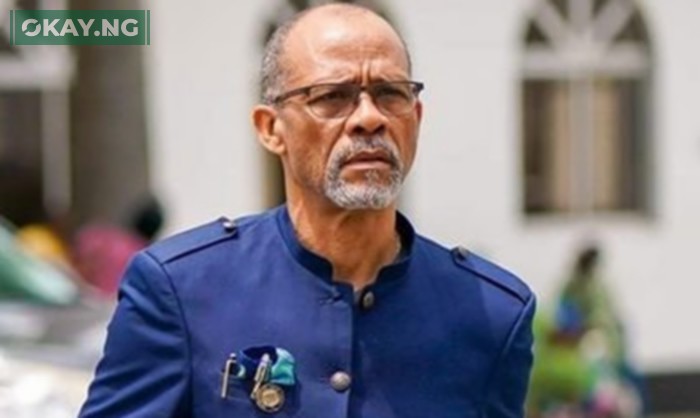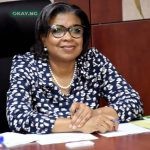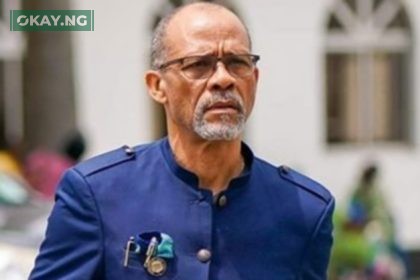The Lagos State Government has announced a critical shortage of medical professionals, requiring an additional 33,000 doctors and 33,000 nurses to adequately serve its burgeoning population. The disclosure was made yesterday by the State Commissioner for Health, Prof. Akin Abayomi, during a media briefing marking the second anniversary of Governor Babajide Sanwo-Olu’s second term in office.
According to Prof. Abayomi, while the state currently has 7,000 doctors, the existing workforce falls drastically short of the required numbers to cater to the healthcare needs of Lagos’s vast populace. This significant deficit underscores the challenges faced by the state in delivering quality and accessible medical care to all its residents.
“We currently have 7,000 doctors in Lagos State, but the reality is we need an additional 33,000 to meet the healthcare demands of our population,” Prof. Abayomi stated. The need for a similar number of nurses further compounds the urgency of addressing this human resource gap within the state’s health sector.
In response to this pressing issue, the state government is pinning its hopes on the newly established Lagos State University of Medicine and Health (UMH) as a long-term solution. Prof. Abayomi expressed optimism that the institution would significantly boost the healthcare workforce within the next five years. “Within five years, UMH will produce about 2,500 healthcare workers yearly in Lagos State. Other cadres will include laboratory scientists,” he affirmed, signaling a strategic investment in local capacity building.
The Commissioner also provided updates on the adoption of the state’s health insurance policy, noting that 1,252,959 residents, representing a mere 4.17 per cent of the registered population, have enrolled with the state health insurance agency. Currently, 419 health facilities are empanelled to provide services under the scheme. Despite the relatively low uptake, Prof. Abayomi voiced confidence that the recently enacted mandatory nature of the state health insurance act would lead to a substantial increase in the scheme’s funding pool, thereby enhancing its capacity to provide broader coverage.
Simultaneously, the Lagos State Government is making significant strides in expanding its healthcare infrastructure. Prof. Abayomi reported substantial progress on several key projects, including the New Massey Street 150-bed Children’s Specialist Referral Hospital on Lagos Island, which is 70 per cent complete. Additionally, the 280-bed Ojo General Hospital and Staff Quarters in Iba, Ojo, has reached 75 per cent completion, while the Mental Health Institute in Epe is 65 per cent complete. He assured that all three critical health facilities are on track for commissioning by April 2026, promising a significant boost to the state’s capacity to handle specialized medical needs.
Beyond infrastructure and workforce development, Prof. Abayomi also addressed the prevalence of various health conditions in the state. He revealed that approximately 135,224 residents are living with Human Immunodeficiency Virus (HIV), and the government has engaged over 100 religious leaders as HIV and AIDS ambassadors to enhance awareness and reduce stigma. Furthermore, the state has provided free cervical cancer screenings for 154,228 patients and treatment for 8,613 individuals using thermal ablation. Prostate cancer screenings have also been conducted for 300 men.
Read Also: Lagos Battles Diphtheria Outbreak: 10 Cases Confirmed, Urgent Action Underway
The Commissioner further highlighted the concerning statistics related to non-communicable diseases, stating that 312,927 persons have been screened for hypertension and diabetes. In a state with an estimated population of 30 million, the prevalence of hypertension is around 20 per cent, with a staggering 70 per cent of those affected being unaware of their condition. Similarly, the obesity prevalence stands at 12 per cent, and diabetes at six per cent, with 50 per cent of individuals with diabetes unaware of their status.
These figures underscore the dual challenge facing Lagos State: not only does it need more healthcare professionals and facilities, but also a more robust public health strategy to address both infectious and non-communicable diseases within its rapidly growing population. The government’s commitment to expanding UMH and its ongoing infrastructure projects offer a glimmer of hope in tackling the critical healthcare worker shortage and improving access to medical services for all Lagosians.










